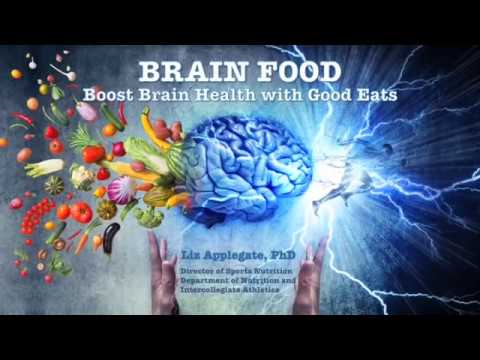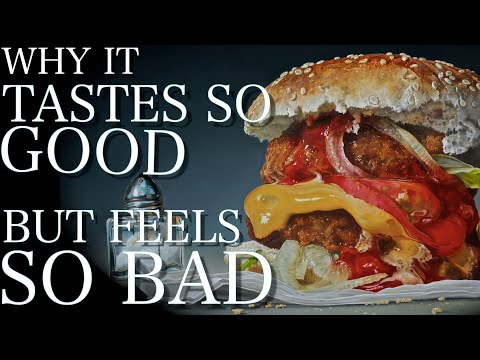Why Does My Stomach Hurt When I Eat Fast Food? Many people eat fast food when they’re on the go, in a hurry, or don’t have time to prepare a nutritious meal at home.
Fast food meals generally contain high-calorie foods with little nutritional value. These foods may be linked to health risks such as obesity and a higher risk of heart disease. Fast food is also high in salt and trans fat.
Overeating fast food can lead to discomfort, such as stomach cramps and nausea when your body isn’t used to the food or when it’s eaten in large amounts. If you eat a lot of fast food often, you can take steps to reduce these symptoms.

Why do I feel bad when I eat fast food?
If you’re new to fast food, your body may not be accustomed to it. Fast foods are high in calories but low in nutritional content, contributing to weight gain and other health risks.
As with any new food, it takes time for your digestive system to adapt so you can eat healthier foods without discomfort.
Consuming more of these types of foods than usual may increase the risk of stomach pain. Overeating fast food can cause bloating, cramps, nausea, and vomiting because your body isn’t accustomed to it or because you overate it at once.
Fast food is typically high in sodium chloride (salt), which causes water retention inside cells throughout your body. Consuming too much sodium chloride can cause the body to pull water from cells, which causes bloat.
Why is fast food unhealthy?
Fast foods are high in fat content and low in nutritional value. Fast foods offer very little fiber or nutrients (vitamins, minerals), but they do offer lots of calories (energy).
They are typically made with refined grains (white flour, white rice), very few whole grains, and little to no fruits or vegetables. This kind of diet may increase the risk for chronic diseases such as heart disease and diabetes.
10 Reasons to Avoid Does My Stomach Hurt When I Eat Fast Food:
1. Fast food is high in fat, sugar, and sodium
If you eat fast food often, it may be taking a toll on your health. Many items contain high amounts of saturated fats (which can increase the risk of heart disease) and trans-fats (which contribute to diabetes).
Some studies have found that adults who eat fast-food meals more than twice a week have higher cholesterol levels, putting them at greater risk for heart disease. Kids who eat fast food most days of the week may be at increased risk of obesity and diabetes.
A Harvard University study followed 120,000 men and women for up to 20 years and found that people who ate fast food two or more times per week had a 30 percent greater risk of developing type 2 diabetes than people who did not eat fast food.
2. Fast food does not fill you up

Fast foods are high in energy but low in nutrients that satisfy your appetite. When you eat at fast-food restaurants, you may feel hungry again soon after eating.
This can cause you to overeat and gain weight. Plus, the high-calorie counts mean that eating fast food frequently can lead to obesity. Fast foods are usually high in sodium, which may also cause you to feel hungrier.
3. Eating fast food is linked with a higher risk of heart disease
Eating many healthy fruits and vegetables and whole grains, which are both high in fiber and nutrients, may lower your risk for heart disease.
4. Fast food is high in saturated fat
Saturated fats raise harmful cholesterol levels and have been linked with a higher risk of heart attack and stroke.
Trans fats don’t contain any essential nutrients or vitamins, but they do raise bad cholesterol. They are found in processed foods containing partially hydrogenated oils, which act like saturated fats in the body.
5. Fast food may be high in sodium
Many fast-food items contain large amounts of sodium, which can increase your risk of developing hypertension or heart disease over time.
According to the Centers for Disease Control and Prevention (CDC), fast foods provide nearly one-third of the sodium we get from an entire day’s worth of food and beverages.
6. Fast food is high in refined grains
When you eat too many refined grains, your body receives more carbohydrates than it can use at one time. You store that extra energy as fat or other types of body tissue.
Refined grains are found in many fast food items or ingredients, including bread, rolls, pasta, tortillas, and doughnuts.
7. Fast food is often highly processed
Processed foods are sometimes high in calories while containing a few nutrients that your body needs for good health. They can also be higher in sodium, sugars, and unhealthy ingredients like saturated fats.
8. Fast food is typically high in sugar
Fast foods are often loaded with added sugars that can lead to weight gain or other health problems.
Added sugars are found in most items at your local fast-food restaurant, including bread, rolls, buns, doughnuts, and pastries. Some things, like ice cream cones and shakes, contain high amounts of sugar.
9. Fast food is typically high in solid fats
Solid fats are often added to processed foods because they make the food taste good and extend its shelf life. When you overeat saturated fat (from any source), it can increase your risk for heart disease, heart attack, and stroke.
10. Fast food is high in calories
Eating many calories without getting lots of nutrients can lead to weight gain or obesity over time. It can also increase your risk for chronic diseases, such as diabetes and heart disease.
Fast food items like French fries, chicken nuggets, and breaded fish contain high amounts of saturated fat and sodium, contributing to heart disease.
The high sodium and saturated fat levels found in many fast foods can increase your blood pressure and cholesterol levels, especially if you already have high blood pressure or cholesterol.
Why does my stomach hurt when I eat fast food?
Fast food is high in salt. Overeating salt may lead to water retention and increased blood pressure, which can cause bloating, cramps, or nausea. A diet that contains high amounts of sodium chloride (salt) but lacks adequate potassium may cause a deficiency in potassium.
Potassium is an essential mineral that helps your body maintain fluid and electrolyte balance. A potassium deficiency may cause dehydration, which also can lead to abdominal cramps or discomfort. Summary Fast food often contains high amounts of sodium chloride (salt),
Which increases the risk of water retention, bloating, and abdominal cramps. Consuming large amounts of fast food may also cause discomfort because your body isn’t used to the high sodium chloride and low potassium content.
Fast foods typically lack sufficient fiber and whole grains and contain little to no fruits and vegetables, leading to deficiencies in these necessary nutrients.
The Bottom Line
There are many reasons why your stomach might hurt when you eat fast food. The most common culprits include high fat and sugar content, not chewing thoroughly enough before swallowing or eating too quickly.
Although it’s important to understand that there is no one specific cause of digestive issues after consuming certain foods, we hope these tips can help guide you in making better decisions for your gut health!

